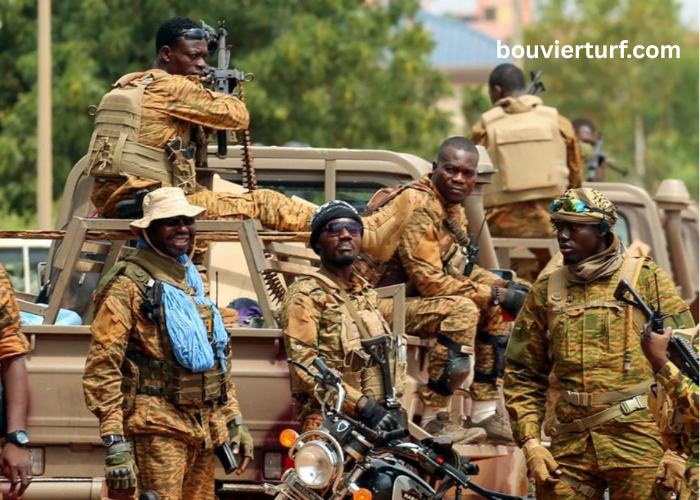The rise of Terrorisme Au Burkina Faso has become one of the most pressing issues affecting the West African nation in recent years. This security challenge has not only caused immense human suffering but also threatened the stability of the entire region. Understanding the roots and the current situation surrounding Terrorisme Au Burkina Faso is essential to addressing this crisis and finding solutions.
The situation of Terrorisme Au Burkina Faso involves complex socio-political factors that have led to widespread violence and insecurity. Many groups, both local and international, have been involved, contributing to a growing humanitarian crisis. In this article, we will explore the causes, impacts, and ongoing efforts to combat Terrorisme Au Burkina Faso, and the consequences for the future of the country and its citizens.
What Are the Causes of Terrorisme Au Burkina Faso?
Terrorisme Au Burkina Faso has multiple causes, each contributing to the current state of insecurity. One of the primary factors is the porous borders between Burkina Faso and its neighbors, which allows insurgent groups to move freely across regions. These borders are often exploited by armed groups such as Al-Qaeda in the Islamic Maghreb (AQIM) and ISIS, who operate in the Sahel region. Their influence has directly impacted the stability of Burkina Faso, making it a target for attacks.
Another key cause is the lack of state presence in rural areas. In many regions, local governments struggle to provide basic services or security, which leaves communities vulnerable to recruitment by extremist groups. As these groups gain influence, they create an atmosphere of fear and distrust, further destabilizing the region. The government’s inability to control these areas has allowed Terrorisme Au Burkina Faso to spread unchecked.
How Has Terrorisme Au Burkina Faso Affected the Population?
The effects of Terrorisme Au Burkina Faso on the population are both immediate and far-reaching. The most visible impact is the loss of life, with thousands of civilians killed in attacks by extremist groups. This violence has led to widespread displacement, with hundreds of thousands of people forced to flee their homes in search of safety. As a result, entire communities have been torn apart, and people have lost their livelihoods and access to essential services such as healthcare and education.
Additionally, Terrorisme Au Burkina Faso has created a humanitarian crisis, with millions in need of aid. The violent nature of the conflict has made it difficult for humanitarian organizations to operate in affected areas, exacerbating the suffering. Basic necessities such as food, water, and medical supplies are in short supply, leaving many people without the support they need to survive. The psychological impact of living under constant threat has also taken a toll on the mental health of the population.
What Role Do Extremist Groups Play in Terrorisme Au Burkina Faso?
Extremist groups are the main perpetrators of Terrorisme Au Burkina Faso, and their activities are central to understanding the ongoing violence. Groups such as the Group for the Support of Islam and Muslims (GSIM), which is affiliated with Al-Qaeda, and the Islamic State in the Greater Sahara (ISGS) are the primary actors behind the attacks. These groups have used violence to impose their radical ideologies, targeting both government officials and civilians alike.
The presence of these groups has led to an escalation in attacks, with bombings, ambushes, and raids becoming more frequent. These attacks are designed not only to instill fear but also to disrupt the government’s ability to govern effectively. Terrorisme Au Burkina Faso is a method of destabilization, with these groups seeking to create a power vacuum in which they can operate freely. Their goals are often political and ideological, aiming to control territory and force governments to negotiate with them.
How Has the Government of Burkina Faso Responded to Terrorisme Au Burkina Faso?
The response of the government to Terrorisme Au Burkina Faso has been a mixture of military action and international cooperation. The Burkinabe military has fought back against insurgents, but their efforts have often been hindered by insufficient resources and training. Despite these challenges, there have been some successes in recapturing territory from extremist groups, though the overall situation remains dire.
In addition to military action, Burkina Faso has sought support from international partners, including France and the United Nations. These alliances have resulted in joint military operations and humanitarian assistance, aimed at mitigating the impact of the violence. However, the international response has been criticized for not being quick or comprehensive enough to fully address the scale of Terrorisme Au Burkina Faso. As the conflict continues, the government faces increasing pressure to find more effective solutions to restore peace and stability.
What Are the Long-Term Consequences of Terrorisme Au Burkina Faso?
The long-term consequences of Terrorisme Au Burkina Faso are severe and multifaceted. Economically, the country has suffered greatly. The disruption caused by violence has led to a decline in tourism, agriculture, and trade, which were once vital to the economy. The displacement of millions of people has also created a burden on the country’s infrastructure, while security concerns have deterred foreign investment. As a result, Terrorisme Au Burkina Faso is not only a security issue but also an economic crisis.
Socially, the impact is equally profound. The disruption of education and healthcare services has had long-lasting effects on the well-being of the population, particularly for children who are unable to attend school. The psychological toll of the violence has also left deep scars on the collective psyche of the Burkinabe people. Furthermore, the breakdown of social cohesion caused by the conflict has increased ethnic tensions and mistrust within communities, making it more difficult to achieve national unity.
What Steps Are Being Taken to Combat Terrorisme Au Burkina Faso?
Efforts to combat Terrorisme Au Burkina Faso are ongoing and include both military and non-military measures. On the military front, the Burkinabe government has intensified its operations against extremist groups, with support from international allies such as France, the United States, and the United Nations. These joint operations aim to dismantle insurgent networks and prevent the further spread of violence.
In addition to military action, non-military approaches are also being explored. These include community engagement programs aimed at preventing radicalization, as well as efforts to improve governance and ensure that marginalized communities feel supported by the state. The government is also working with international organizations to provide humanitarian aid to those affected by the violence, although the challenges are immense.
Conclusion
In conclusion, Terrorisme Au Burkina Faso remains a significant and complex issue, impacting the security, economy, and social fabric of the country. While efforts to combat this menace are ongoing, the challenges are substantial.
The government must continue to work with international partners to strengthen security forces and improve governance in affected areas. Ultimately, finding a lasting solution to Terrorisme Au Burkina Faso will require addressing the root causes of extremism and fostering greater stability across the region.





